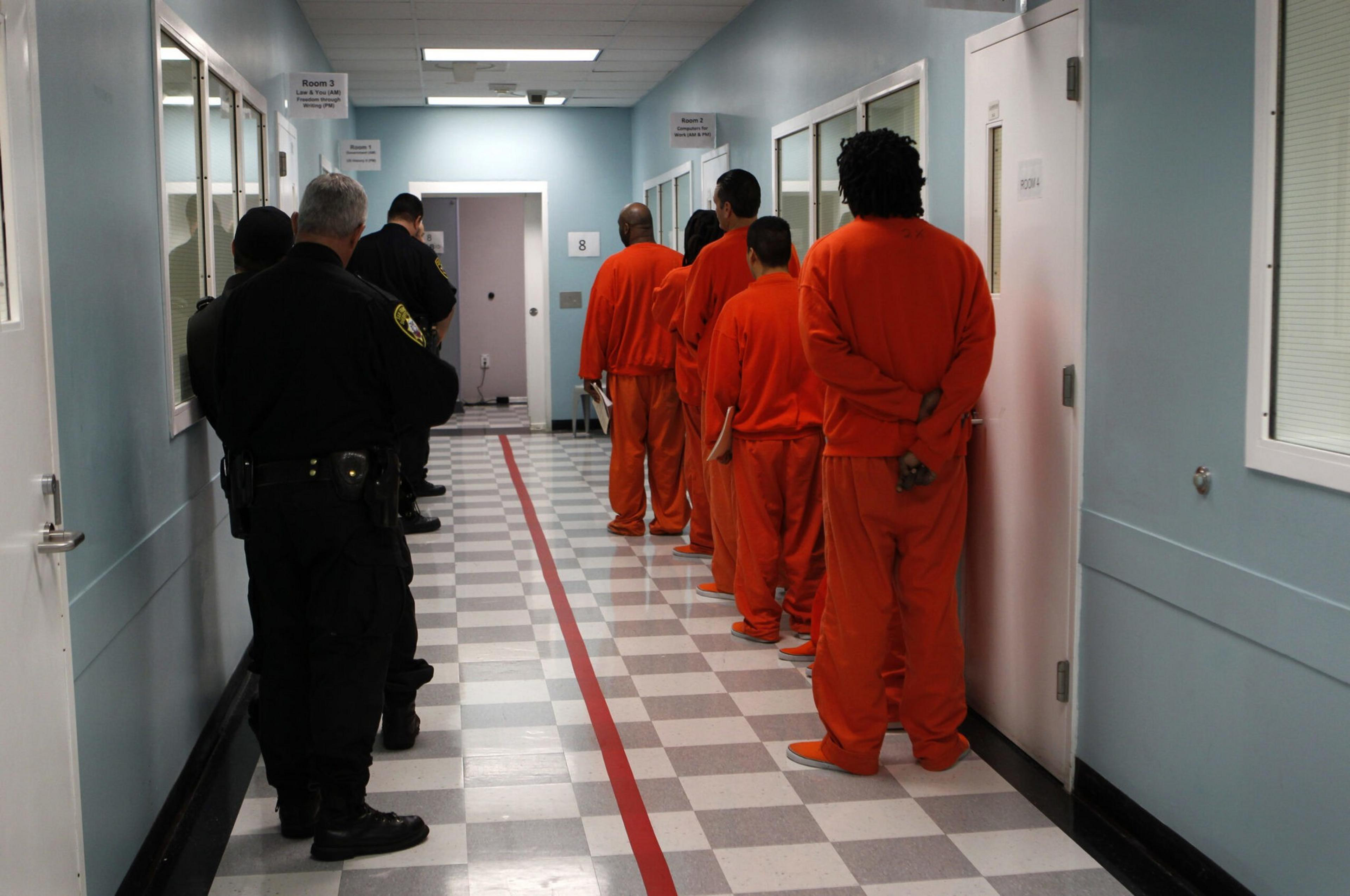San Francisco’s jail population reached 1,000 people for the first time in years on Tuesday, reflecting a renewed focus on arrests and waning concerns over the Covid pandemic.
The city released many people from local jails at the onset of the pandemic, resulting in a decrease in the average jail population from 1,277 in 2019 to 850 in 2020. In August 2020, San Francisco closed a jail at 850 Bryant St. that was deemed seismically unsafe, outdated and in disrepair.
Now, as the jail population creeps back up, the San Francisco Deputy Sheriffs’ Association is calling for a new, maximum-security jail with job programs, and criminal justice reform advocates are voicing concerns that the city will revert to using the outdated jail it closed nearly three years ago.
“The criminal justice system has deteriorated due to political decisions,” said Ken Lomba, president of the Deputy Sheriffs’ Association, in a statement. “The jails are Band-Aided to handle the current population.”
The increase in the jail population comes as law enforcement officials have ramped up arrests of people using and selling drugs in public. On May 30, the city launched an initiative to arrest people suspected of using drugs in public; the jail population has since climbed to 1,001 people as of Tuesday.
Total crime reports in the last year are down 1% compared with the same period ending in 2022; however, police have logged a significant increase in the number of drug offenses in the past 365 days, with nearly 2,460 incidents documented by police representing a 36% climb over the same period ending in 2022.
The climbing jail population has raised the specter of reopening the jail at 850 Bryant that was closed three years ago (opens in new tab).
Legislation drafted by former Supervisor Sandra Lee Fewer in 2020 ordered the closure of the jail as long as the population of jailed people remained below 1,044 people for 60 consecutive days.
The Sheriff’s Department didn’t respond to questions about whether the city will open another jail as the population climbs toward that benchmark. But advocates decried the growing jail population, calling it regressive.
“We can’t fill the jails with people to fuel the political agendas of a few politicians,” said Diana Block, a member of the No New SF Jails Coalition. “We refuse to turn back the progress that we in San Francisco have fought for for years.”
Meanwhile, the Public Defender’s Office has conducted summer sit-ins to protest court backlogs that it says have denied more than 1,100 people their constitutional right to a speedy trial. The office said in a recent press release that 115 people have stayed in jail for months or years past their trial deadlines.
David Mauroff, executive director of a nonprofit called the San Francisco Pretrial Diversion Project, which provides resources to people who are awaiting criminal trial, said the increase in arrests has squeezed his organization’s ability to properly serve clients.
“The city has now decided that arrest, prosecution and incarceration is the answer to our public safety issues,” Mauroff said. “It’s been demonstrated by volumes of research and science that the war on drugs failed.”
Matthew Crane and Noah Baustin contributed data analysis to this report.
